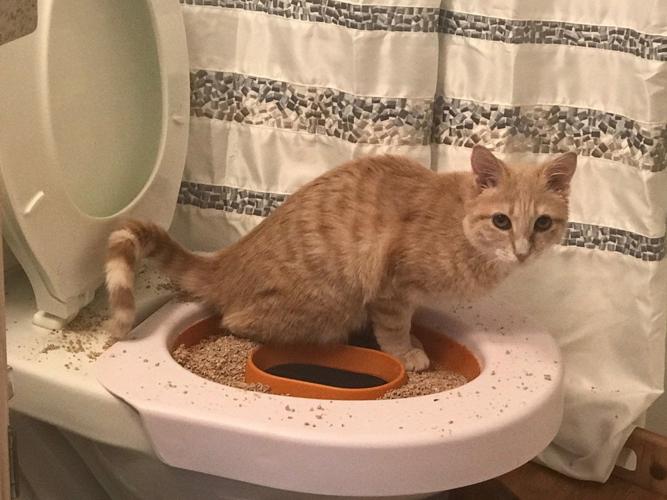Why You Must Never Flush Cat Poop Down Your Toilet - Important Information
Why You Must Never Flush Cat Poop Down Your Toilet - Important Information
Blog Article
Just how do you feel on the subject of Don’t flush cat feces down the toilet?

Intro
As pet cat owners, it's necessary to bear in mind exactly how we throw away our feline friends' waste. While it may seem convenient to purge pet cat poop down the commode, this technique can have harmful consequences for both the setting and human wellness.
Alternatives to Flushing
Luckily, there are much safer and much more accountable methods to deal with cat poop. Think about the following alternatives:
1. Scoop and Dispose in Trash
One of the most typical method of throwing away cat poop is to scoop it into an eco-friendly bag and toss it in the garbage. Make sure to make use of a committed litter inside story and dispose of the waste without delay.
2. Use Biodegradable Litter
Opt for biodegradable cat clutter made from materials such as corn or wheat. These clutters are eco-friendly and can be safely thrown away in the garbage.
3. Bury in the Yard
If you have a backyard, think about burying feline waste in a designated area far from vegetable yards and water sources. Be sure to dig deep enough to avoid contamination of groundwater.
4. Install a Pet Waste Disposal System
Invest in a pet garbage disposal system especially designed for feline waste. These systems make use of enzymes to break down the waste, decreasing odor and environmental influence.
Wellness Risks
Along with ecological concerns, flushing feline waste can likewise present health threats to human beings. Cat feces might consist of Toxoplasma gondii, a parasite that can create toxoplasmosis-- a potentially serious ailment, especially for expecting women and individuals with weakened body immune systems.
Environmental Impact
Flushing feline poop introduces harmful pathogens and bloodsuckers into the water system, posing a substantial risk to aquatic environments. These contaminants can adversely influence aquatic life and compromise water quality.
Conclusion
Accountable family pet possession prolongs past giving food and sanctuary-- it likewise entails correct waste monitoring. By refraining from flushing cat poop down the bathroom and selecting alternative disposal methods, we can minimize our environmental impact and shield human health.
Why Can’t I Flush Cat Poop?
It Spreads a Parasite
Cats are frequently infected with a parasite called toxoplasma gondii. The parasite causes an infection called toxoplasmosis. It is usually harmless to cats. The parasite only uses cat poop as a host for its eggs. Otherwise, the cat’s immune system usually keeps the infection at low enough levels to maintain its own health. But it does not stop the develop of eggs. These eggs are tiny and surprisingly tough. They may survive for a year before they begin to grow. But that’s the problem.
Our wastewater system is not designed to deal with toxoplasmosis eggs. Instead, most eggs will flush from your toilet into sewers and wastewater management plants. After the sewage is treated for many other harmful things in it, it is typically released into local rivers, lakes, or oceans. Here, the toxoplasmosis eggs can find new hosts, including starfish, crabs, otters, and many other wildlife. For many, this is a significant risk to their health. Toxoplasmosis can also end up infecting water sources that are important for agriculture, which means our deer, pigs, and sheep can get infected too.
Is There Risk to Humans?
There can be a risk to human life from flushing cat poop down the toilet. If you do so, the parasites from your cat’s poop can end up in shellfish, game animals, or livestock. If this meat is then served raw or undercooked, the people who eat it can get sick.
In fact, according to the CDC, 40 million people in the United States are infected with toxoplasma gondii. They get it from exposure to infected seafood, or from some kind of cat poop contamination, like drinking from a stream that is contaminated or touching anything that has come into contact with cat poop. That includes just cleaning a cat litter box.
Most people who get infected with these parasites will not develop any symptoms. However, for pregnant women or for those with compromised immune systems, the parasite can cause severe health problems.
How to Handle Cat Poop
The best way to handle cat poop is actually to clean the box more often. The eggs that the parasite sheds will not become active until one to five days after the cat poops. That means that if you clean daily, you’re much less likely to come into direct contact with infectious eggs.
That said, always dispose of cat poop in the garbage and not down the toilet. Wash your hands before and after you clean the litter box, and bring the bag of poop right outside to your garbage bins.
https://trenchlesssolutionsusa.com/why-cant-i-flush-cat-poop/

I recently found that write up on How to Dispose of Cat Poop and Litter Without Plastic Bags while browsing on the internet. Do you know about another individual who is curious about the topic? Why not promote it. Thanks for going through it.
Book Instantly Report this page